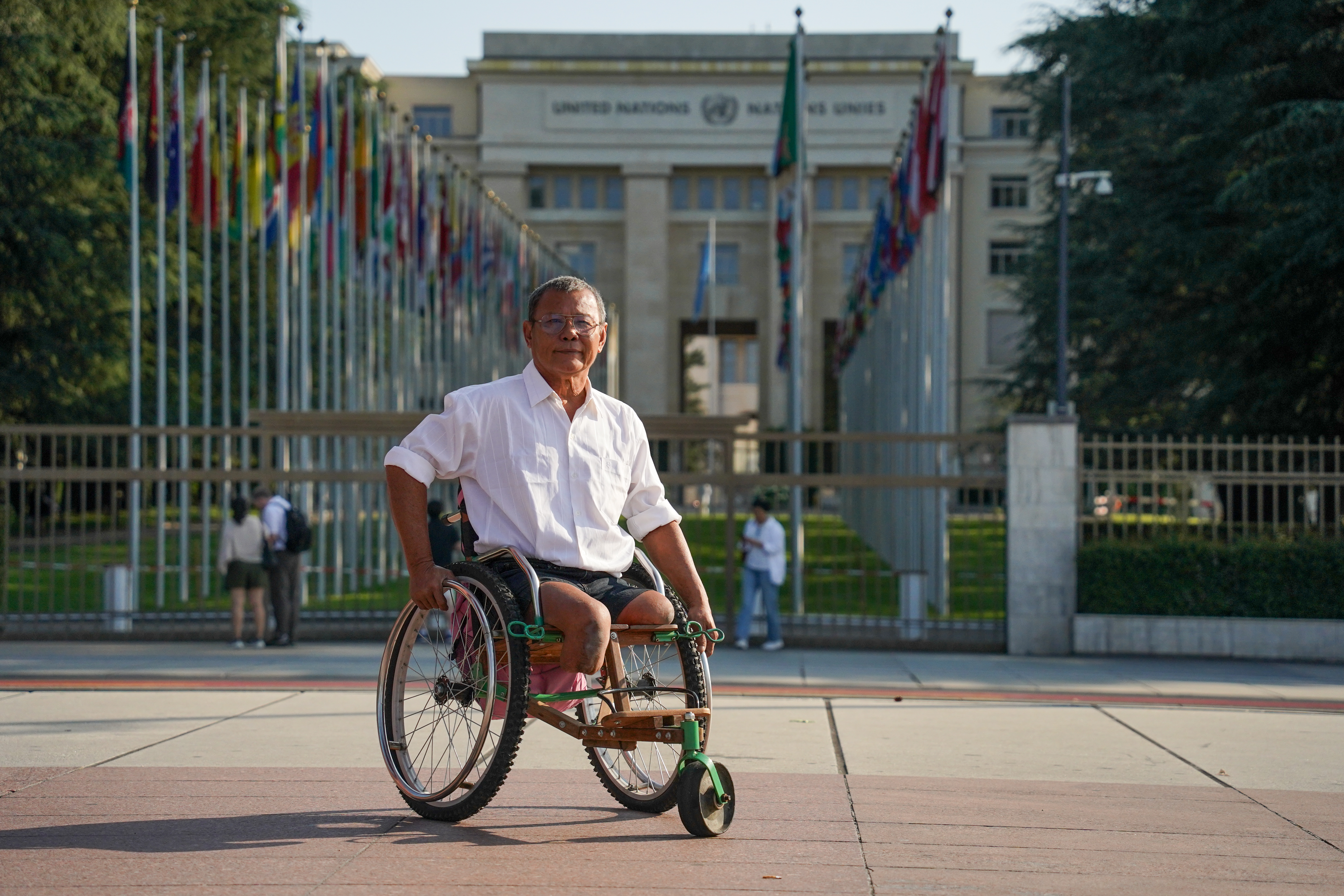
Aid agency takes Swiss to task over drug access

Médecins sans Frontières (MSF) has called on the Swiss authorities to help developing nations gain improved access to lifesaving drugs.
The humanitarian medical aid agency claims the issue is virtually absent from Switzerland’s political debate.
“Switzerland lacks a coherent policy on access to pharmaceuticals,” said Thomas Linde, head of MSF Switzerland.
“Their failure to propose concrete measures to improve access to health care in developing countries is unworthy of the Swiss.”
According to MSF, diseases such as Aids, tuberculosis and malaria kill over 14 million people each year – 95 per cent of them in developing nations.
MSF representatives handed over a petition, signed by 9,000 people, to the Swiss government on Thursday calling on the authorities to take action.
The non-governmental organisation said it decided to go public after failing to gain support from the pharmaceutical industry. MSF spent over a year collecting signatures.
“Each person who signed received a complete package outlining our position,” said Michel Clerc, the organisation’s Swiss spokesman. “We weren’t just grabbing people off the street.”
Taking sides
MSF representatives also met with government officials. The organisation said that while officials recognised the extent of the problem faced by patients in poorer countries, there was a distinct lack of action on the political front.
The NGO has even gone so far as to accuse the government of siding with the country’s pharmaceutical industry – a position that it says is detrimental to patients in developing countries.
Luzius Wasecha, Bern’s chief negotiator at the World Trade Organization, denied this was the case.
However, he said Switzerland had a duty to defend the interests of Swiss pharmaceutical firms.
“Our research-based pharmaceutical industry is a high priority in Swiss foreign economic policy,” he told swissinfo.
In 2001 Swiss pharmaceutical companies exported SFr28 billion worth of drugs. Countries outside the United States, Europe and Japan represented just ten per cent of their market.
Proposals
Wasecha said Switzerland had made proposals to alleviate the problems surrounding access to cheaper drugs.
The Swiss want tariffs on pharmaceuticals to be dropped in countries where there is a specific health crisis, along with increased monitoring of drugs sent to these areas to avoid them being rerouted to lucrative markets.
“There are a lot of people involved in our policy, both in and outside of the government,” he told swissinfo. “It is extremely complex, but it doesn’t lack coherence.”
The WTO negotiator said that Switzerland did recognise the need for improved access to drugs in poorer nations and was working on finding solutions to the problem.
“We have to convince the pharmaceutical industry to use part of its capacity to look at diseases where there has been less research, such as tropical diseases,” he said.
Move forward
The State Secretariat for Economic Affairs is to broker talks between MSF and the pharmaceutical industry.
Wasecha said he was optimistic drug companies would take into account the needs of poorer nations.
“The pharmaceutical industry has started to establish research centres abroad to look into diseases such as malaria,” he said.
“There seems to be a general willingness to move forward on this issue.”
swissinfo, Scott Capper
Swiss pharmaceutical exports reached SFr28 billion in 2001.
The Swiss industry’s biggest markets are the United States (50%), Europe (20%) and Japan (20%).
The rest of the world, including developing nations, accounts for just 10 per cent of exports.
Diseases such as Aids, tuberculosis and malaria kill 14 million people each year, 95 per cent of them in poorer countries.
MSF has called on the Swiss government to develop a coherent policy on granting poorer nations better access to drugs.
The aid agency has accused the authorities of throwing in their lot with the powerful pharmaceutical industry.
Swiss officials deny such a claim, saying Switzerland must defend the interests of the industry.
Switzerland has proposed at the World Trade Organization to drop tariffs on drugs in some developing countries where there is a public health crisis.
But they want to ensure that these cheaper drugs are not rerouted to more lucrative markets.

In compliance with the JTI standards
More: SWI swissinfo.ch certified by the Journalism Trust Initiative






































You can find an overview of ongoing debates with our journalists here . Please join us!
If you want to start a conversation about a topic raised in this article or want to report factual errors, email us at english@swissinfo.ch.